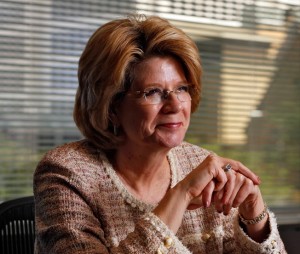The Australian Reserve Bank governor has confirmed that a housing investor surge is his “one area of concern” and lending limits are “worth a try”. Mr Stevens reiterated that the focus of the bank’s concerns is a surge in property investors, especially in Australia’s two largest cities. “There is one area that I think is of concern right now, and that is that investor finance is growing at double-digit rates,” he observed.
“It’s nearly half the flow of new approvals, a lot of this is interest only lending in an environment of rising house prices, especially in Sydney and Melbourne.”
Mr Stevens reluctantly talked about so-called macroprudential policies that would place some extra restrictions on bank lending after being quizzed on the subject during the panel discussion.
In the bank’s latest half-yearly Financial Stability Review released yesterday, the RBA had revealed that it was in discussions with the banking regulator about imposing some such restrictions specifically on housing investment loans. Mr Stevens said such rules would not be a panacea to cure all ills, but he did not back away from the prospect of temporary, investor-targeted lending rules to curb finance growth in that sector. “I think it’s perfectly sound and sensible to ask ourselves whether there are tools that might at least lean on that a bit,” he said. “I see not much downside in doing so – the worst that could happen is it doesn’t have that big an effect, but if it had some and that helped us to square in some small way all the conflicting things that we have going on that is worth a try.”
The main topic of the governor’s talk was the current inquiry into Australia’s financial system. The Financial System Inquiry, commissioned by the Federal Government and chaired by former Commonwealth Bank chief David Murray, is due to complete its final report in November. Mr Stevens told the forum that regulation of risk is one of four areas he hopes the review will address. He says risk taking can be good, provided it is the right kind. “A feature of the world economy is there’s a lot of financial risk taking and not all that much real economy risk taking: the entrepreneurs with a project, an idea, a market, a product, a new worker,” he lamented. “That type of risk taking, which is the one we really want, there’s less of that than we would like.”









